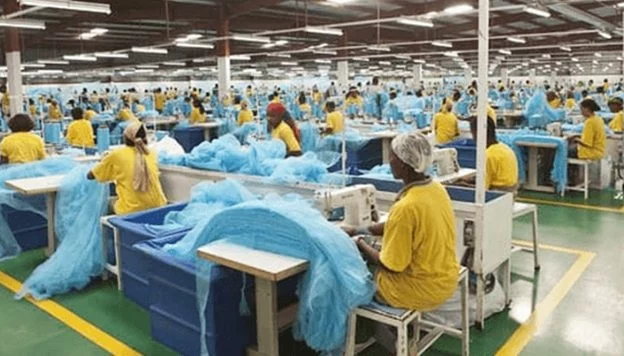Nigerian manufacturers have listed increase in the cost of energy, acute shortage of forex and the continuous depreciation in the value of naira as their biggest challenges affecting productions and growth of the industry.
These are not the best of times for manufacturing firms in Nigeria. The prevailing circumstances in the domestic operating environment, especially high cost of diesel, poor access to foreign exchange, insecurity, delay in importing raw materials and exporting finished products among others are taking a toll on their productivity.
Manufacturers noted that increase in cost of energy pushed up global inflation which affected the cost of importation across the world, including Nigeria, saying with limited forex inflow from crude oil sales, forex demand pushed over the bounds of supply and contributed to the depreciation in naira value.
They said manufacturing in Nigeria is heavily beset by these price developments and manufacturers are contending with these challenges while struggling to sustain production.
Speaking, the director-general of Manufacturers Association of Nigeria (MAN), Segun Ajayi-Kadir, said manufacturers are concerned about the increase in the cost of energy, acute shortage of forex and the continuous depreciation in the value of naira, including other familiar challenges of the sector.
According to him, the primary driving force for sustaining production is the patriotism and resilience that the Nigerian manufacturers processes. The optimism that these challenges would eventually be addressed.
He noted that most manufacturers embark on strategic measures to minimise the impact of the inclement operating environment on their activities such as: cost cutting; products selection and prioritisation; expanding their investment in the development and production of raw materials locally; increased resort to self-energy generation and energy mix to complement the inadequate electricity supply from the national grid; and dissaving retained earnings to support the current crippling condition.
CEO of Centre for the Promotion of Private Enterprise (CPPE), Dr Muda Yusuf, said the sharp depreciation of the naira exchange rate in the parallel market remains a cause for concern.
He stated that “it is a trend that should not be allowed to continue and all necessary steps need to be taken and urgently too to stem the slide and volatility. These developments should not be ignored. It is as much of an issue to consumers as it is to producers and other stakeholders that create value in the economy. It calls for an urgent review of the current foreign exchange policy.
Yusuf called for adoption of a flexible exchange rate policy regime, clarifying that this is not a devaluation proposition, rather is it is a pricing mechanism that reflects the demand and supply fundamentals in the foreign exchange market.
“It is a model that is sustainable, predictable and transparent. It is a policy regime that would reduce uncertainty and inspire the confidence of investors. It is a policy framework that would minimise discretion and arbitrage in the foreign exchange allocation mechanism,” he said.
He added that “the Nigerian economy has the capacity to weather the current turmoil if the policy contexts are right. We have the market, the people and natural resources. The opportunities that the present situation offers would only be realised if policy obstructions to resource flows are removed.”
The president of Nigerian Association of Chambers of Commerce, Industry, Mines, and Agriculture (NACCIMA), Ide Udeagbala, called on both the federal and state governments to urgently prioritise the need to revitalise the industrial sector for more inclusive economic growth.
He suggested that government at the federal and state levels should create and maintain enabling environment that is investment friendly as this will entail enunciating and maintaining policies that remove bottlenecks to business investments.
Udeagbala insisted on government to address the various factors that are capable of increasing cost of doing business in Nigeria, saying these are critical issues which if addressed urgently will help position the economy for foreign direct investment and encourage local investors into establishing industries that will enhance jobs creation and improved GDP.
The president of Lagos Chamber of Commerce and Industry (LCCI), Dr. Michael Olawale-Cole, said many factors have continued to weigh on the growth of the manufacturing sector, such as rising energy costs with diesel above N800/litre, Jet-A1 at N710 per litre, and PMS selling above the government-regulated price of N165/litre, saying these price levels will continue to aggravate production costs which may lead to restrained manufacturing and eventual job losses.
He also noted that “the worsening security situation in many parts of the country will continue to threaten agricultural production, manufacturing value chains, and logistics. We expect to experience some fiscal constraints because of debt overhang accompanied by a high debt service burden and heavy subsidy costs. There are therefore heightened fears of contracting output, constrained production, and recession risks as we navigate the murky waters of 2022.”
On way forward, Olawale-Cole said that the Central Bank of Nigeria (CBN) needs to initiate a gradual transition to a unified exchange rate system and allow for a market reflective exchange rate.
According to him, CBN also needs to roll out more friendly supply-side policies to boost productive sectors, bolster investor confidence and help attract foreign investment inflows into the economy.
“There is a need to address structural bottlenecks and regulatory constraints that contribute to the high cost of doing business. A supportive and conducive investment environment is critical in facilitating private sector involvement in the economic recovery and growth process.
“The government should initiate moves towards having cost-reflective tariffs in the power sector as this will attract the needed investment to boost power supply and possibly end the frequent crashes of the national grid. We should also begin to initiate special-purpose interventions in boosting the deployment of renewable energy,” he added.





